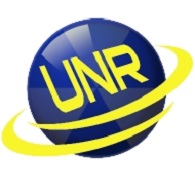Difference between Outlook and Outlook Express
| Article ID | : | 257824 |
| Last Review | : | May 15, 2006 |
| Revision | : | 4.0 |
SUMMARY
MORE INFORMATION
- Home users who need easy and reliable Internet, e-mail, and newsgroup functionality.
- Business users who require reliability and ease of use, but who also need more e-mail functionality and tight integration between e-mail and tools for information management and collaboration.
Most users find that their needs are best met by the client that is optimized for their usage patterns. The following sections provide more information about how Outlook Express meets the needs of home users and how Outlook meets the needs of business users.
Outlook Express
Outlook Express is the e-mail client that is included with Microsoft Internet Explorer 4.x, Microsoft Internet Explorer 5.x, the Microsoft Windows 98 operating system, the Microsoft Windows Millennium Edition (Me) operating system, the Microsoft Windows 2000 operating systems, and Microsoft Office 98 for the Macintosh. Outlook Express is designed for home users who gain access to their e-mail messages by dialing in to an Internet service provider (ISP).Built on open Internet standards, Outlook Express is designed for use with any Internet standard system, for example, Simple Mail Transfer Protocol (SMTP), Post Office Protocol 3 (POP3), and Internet Mail Access Protocol (IMAP). It provides full support for today's most important e-mail, news, and directory standards such as Lightweight Directory Access Protocol (LDAP), Multipurpose Internet Mail Extension Hypertext Markup Language (MHTML), Hypertext Markup Language (HTML), Secure/Multipurpose Internet Mail Extensions (S/MIME), and Network News Transfer Protocol (NNTP). Full support ensures that you can take advantage of new technologies as well as seamlessly send and receive e-mail.
New migration tools that automatically import your existing mail settings, address book entries, and e-mail messages from Eudora, Netscape, Microsoft Exchange Server, the Windows Inbox, and Outlook make it easy for you to quickly take advantage of all that Outlook Express has to offer. The ability to receive mail from multiple e-mail accounts, as well as the ability to create Inbox rules, helps you manage and organize your e-mail.
In addition, full support for HTML mail enables you to personalize your messages with custom backgrounds and graphics. This makes it easy to create unique, visually powerful messages.
For special occasions, such as birthdays or holidays, Outlook Express includes stationery designed by Greetings Workshop and Hallmark.
Outlook
Outlook is Microsoft's premier messaging and collaboration client. It is a stand-alone application that is integrated into Microsoft Office and Exchange Server. Outlook also provides performance and integration with Internet Explorer 5.5. Complete integration of e-mail, calendaring, and contact management, makes Outlook the perfect client for many business users.Outlook helps you find and organize information so that you can work seamlessly with Office applications. This helps you communicate and share information more effectively.
Powerful Inbox rules enable you to filter and organize e-mail messages. With Outlook, you can integrate and manage e-mail from multiple e-mail accounts, personal and group calendars, contacts, and tasks.
When you use Outlook with Exchange Server, you can use workgroup information sharing and workflow communications, group scheduling, public folders, forms, and enhanced Internet connectivity.
Outlook is designed for use with the Internet (SMTP, POP3, and IMAP4), Exchange Server, or any other standards-based communication system that supports Messaging Application Programming Interface (MAPI), including voice mail. Outlook is based on Internet standards and supports today's most important e-mail, news, and directory standards, including LDAP, MHTML, NNTP, MIME, and S/MIME, vCalendar, vCard, iCalendar, and full support for HTML mail.
Outlook also offers the same import tools that are offered with Outlook Express. This enables easy migration from other e-mail clients, and offers further migration from Microsoft Mail, Microsoft Schedule+ 1.0, Microsoft Schedule+ 7.0, Lotus Organizer, NetManage ECCO, Starfish SideKick, Symantec ACT, as well as synchronization with leading Personal Digital Assistants (PDAs), such as the 3Com Palm Pilot.
How to Decide Which Client Best Suits Your Needs
When choosing between Outlook Express and Outlook, users and organizations should base their usage decision on the following criteria:Outlook Express
Choose Outlook Express if:- You require only Internet e-mail and newsgroup functionality (for versions of Windows later than Microsoft Windows 95, versions of Windows earlier than Microsoft Windows 95, Macintosh, and UNIX platforms).
- You use or plan to use Office 98 for Macintosh, and you want to take advantage of the integration of Outlook Express with this version of the Office suite.
Outlook
Choose Outlook if:- You require advanced Internet standards-based e-mail and discussion group functionality.
- You require integrated personal calendars, group scheduling, task, and contact management.
- You require integrated e-mail and calendaring, cross-platform clients for versions of Windows later than Microsoft Windows 95, versions of Windows earlier than Microsoft Windows 95, and Macintosh platforms.
- You use, or plan to use Office 97, Office 2000, Office XP or Exchange Server and want to take advantage of the integration of Outlook with this version of the Office suite, and the integration with Exchange Server.
- You require robust, integrated run-time and design-time collaboration capabilities.
